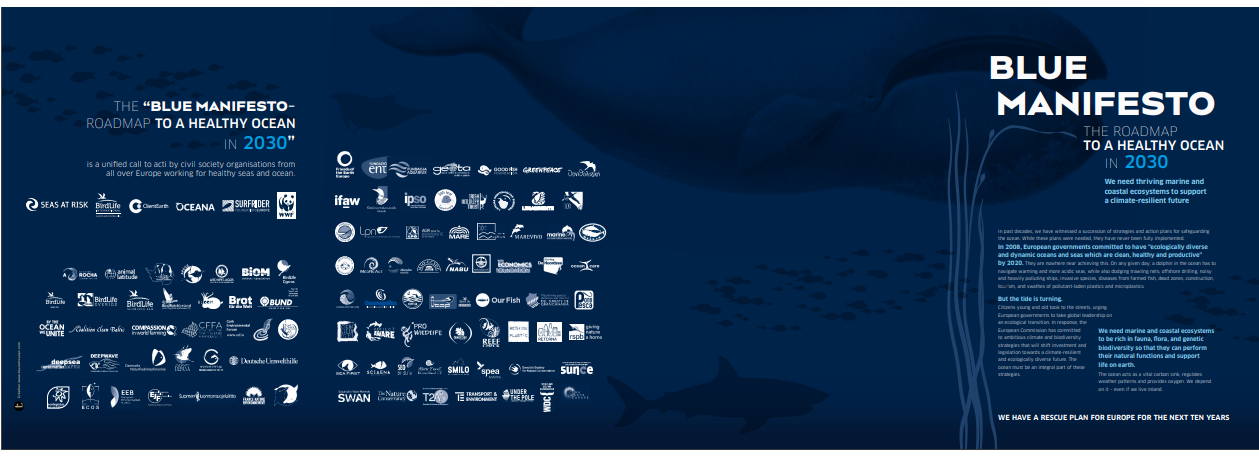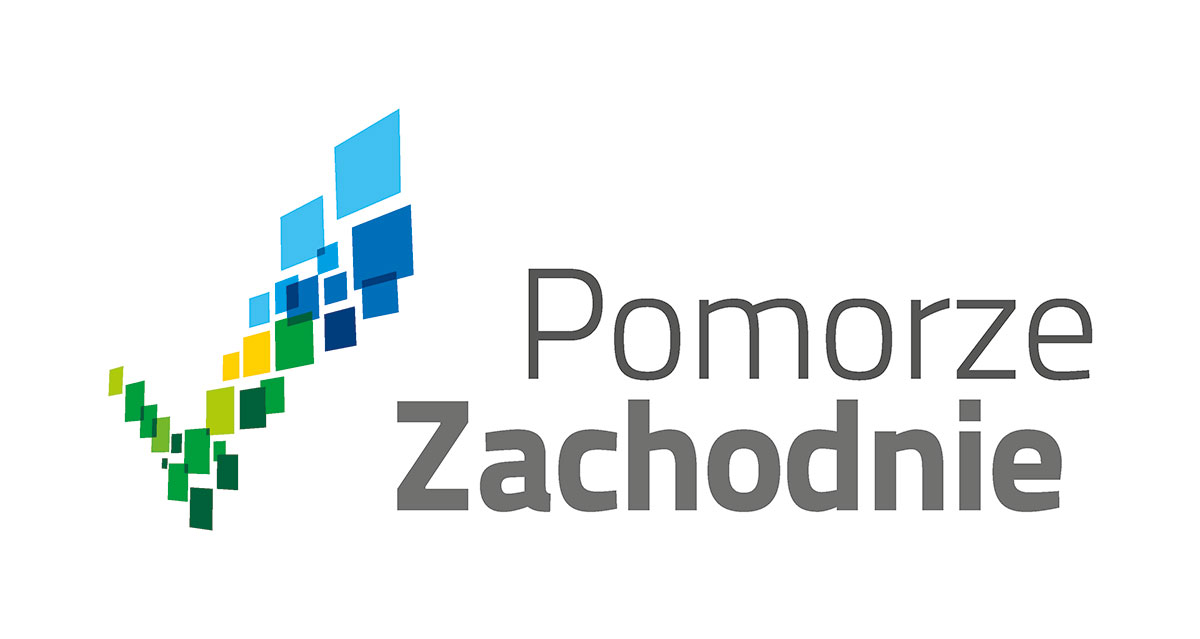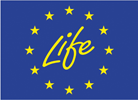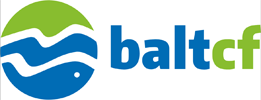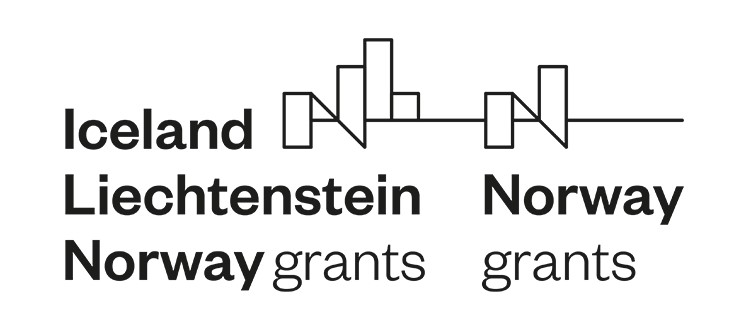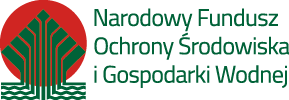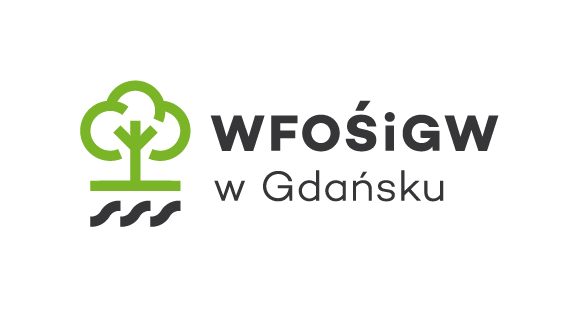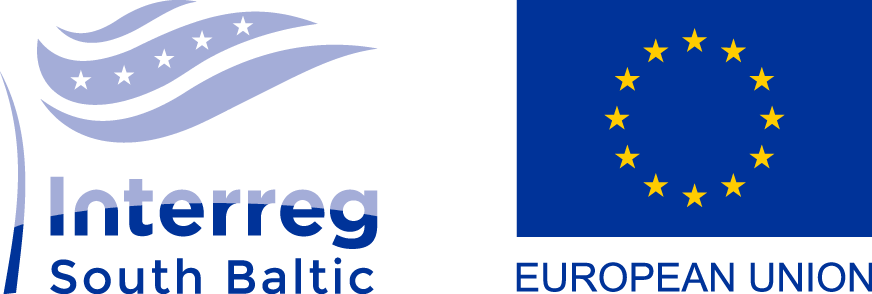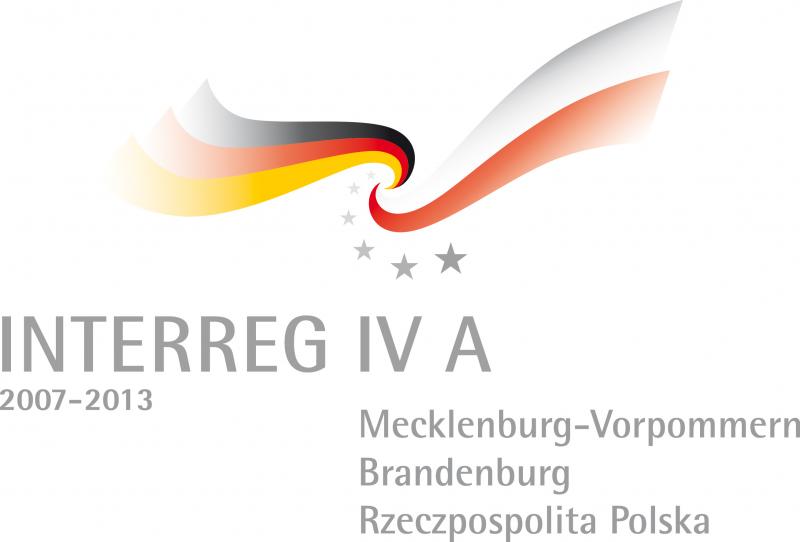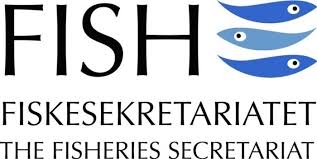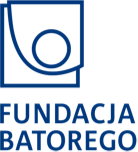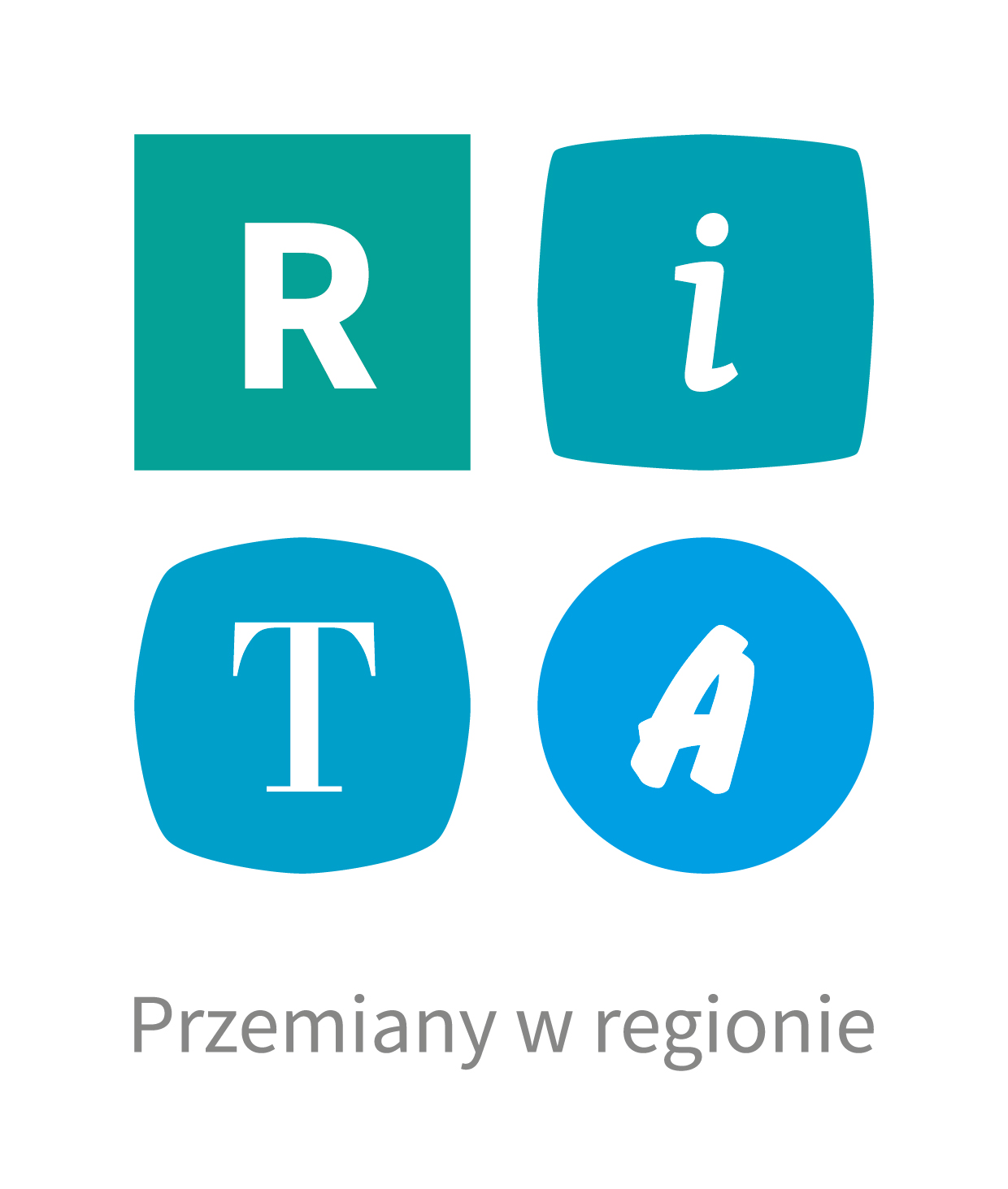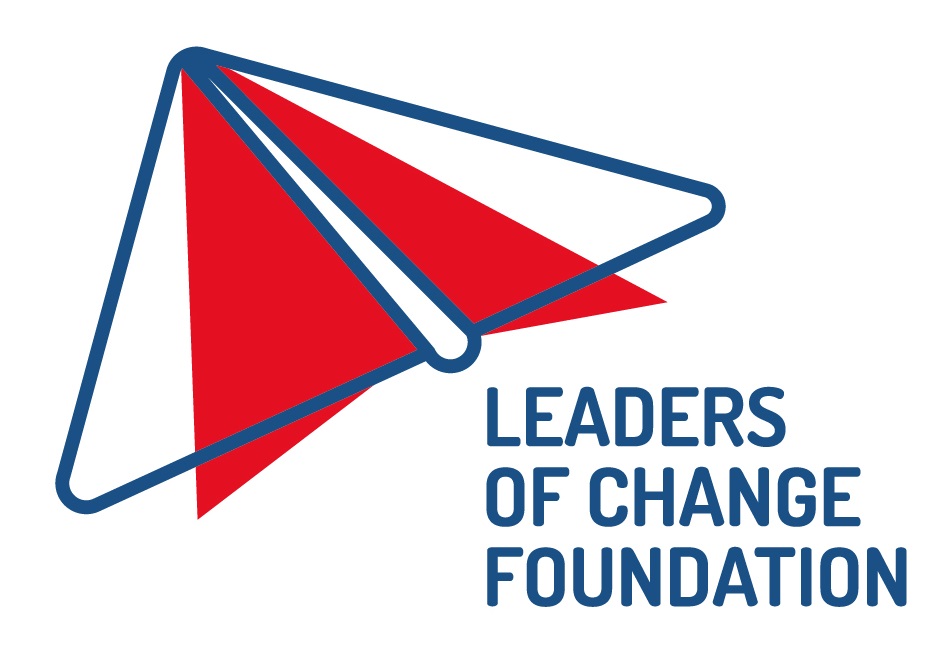Ponad 100 organizacji ekologicznych, kierowanych przez Seas At Risk, BirdLife Europe, ClientEarth, Oceana, Surfrider Foundation Europe i WWF uruchomiło „Niebieski Manifest”. Plan ratunkowy określa konkretne działania, które należy podjąć w ustalonych terminach, aby odwrócić losy coraz bardziej zdegradowanych i zanieczyszczonych oceanów i wybrzeży. Aby odnieść sukces, konieczna jest zmiana zarówno na lądzie, jak i na morzu. Organizacje pozarządowe apelują o:
– o ochronę co najmniej 30% powierzchni oceanów do 2030 r .;
– przejście do połowów o niskim wpływie;
– utrzymanie oceanów wolnych od zanieczyszczeń;
– planowanie działań wspierających odbudowę kwitnących ekosystemów morskich.
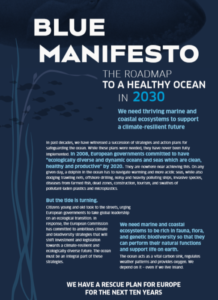
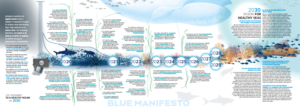
Kompletna lista organizacji, które złożyły podpis pod manifestem:
A Rocha (International Marine and Coastal Conservation Programme); Animal latitude; APECE – Portuguese Association for the Study and Conservation of Elasmobranchs; Archipelagos Institute of Marine Conservation; ASOC – Antarctic and Southern Ocean Coalition; Asociacion plataforma”El Chorlitejo”; BIOM association; BirdLfie Sverige; BirdLife Cyprus; Birdlife Europe and Central Asia; BirdLife Malta; BirdLife Suomi; Birdwatch Ireland; Bloom; Brot für die Welt; BUND – Bund für Umwelt und Naturschutz Deutschland; By the Ocean We Unite; Climate Action Network Europe; CCB – Coalition Clean Baltic (którego członkiem jest także Federacja Zielonych „GAJA”); CFFA-CAPE; ClientEarth; Compassion in World Farming; Cork Env Forum; Cork nature network; Deep Sea Conservation Coalition; Deep wave; DEPANA; DN – Danmarks Naturfredningsforening; DSM – Deutsche Stiftung Meeresschutz; DUH – Deutsche Umwelthilfe; Ecologistas En Accion; Ecos; EEB – European Environmental Bureau; ENT Foundation; Environmental Justice Foundation; FANC – Finnish Association for Nature Conservation; France Nature Environnement; Friends of the Black Sea; Friends of the Earth Europe; Fundajia Aquarium; Geota; Good fish foundation; Greenpeace; HOS – Hellenic Ornithological Society; IFAW – International Fund for Animal Welfare Europe; INCA – Iceland Nature Conservation Association; International Programme on the State of the Ocean; Irish Sea Sanctuary; Irish Wildlife Trust; Legambiante; Living Sea; LOB – Latvian Ornithological Society; LOD – Lithuanian Ornithological Society; LPN – Liga para a Protecção da Natureza; LPO – Ligue pour la Protection des Oiseaux; MARE Foundation; Mare Nostrum; Marevivo; MCS – Marine Conservation Society; MedReact; MedSOS; MEER; MIO-ECSDE – Mediterranean Information Office for Environment, Culture and Sustainable Development; Mundus Maris; NABU – Nature and Biodiversity Conservation Union; Natuurpunt; New Economics Foundation; Ocean and Climate Platform; Oceana; OceanCare; Oceanografica; OMA – Observatório do Mar dos Açores; Otop – Ogólnopolskie Towarzystwo Ochrony Ptaków; Our Fish; PongPesca; Poseidonia green project; Project Aware; Prowildlife; Quercus; ReefCheck; Rethink Plastic Alliance; Retorna; RSPB – Royal Society for the Protection of Birds; SAR – Seas At Risk; Sciaena; SDN – Stichting de Nordzee; Sea First; SEO – Sociedad Española de Ornitología; Slowfood Germany; SMILO – Small Islands Organisation; SPEA – Sociedade Portuguesa para o Estudo das Aves; SSNC – Swedish Society for Nature Conservation; Sunce; Surfrider; SWAN – Sustainable Water Network; T&E – Transport and Environment; TNC – The Nature Conservancy; Tour des deux Amériques solidaire en voilier; Under the pole; WDC – Whale and Dolphin Conservation; WWF; Zero Waste Europe.
